Electric vs Gas Lawn Mower: Which to Choose?
-
- Last updated:
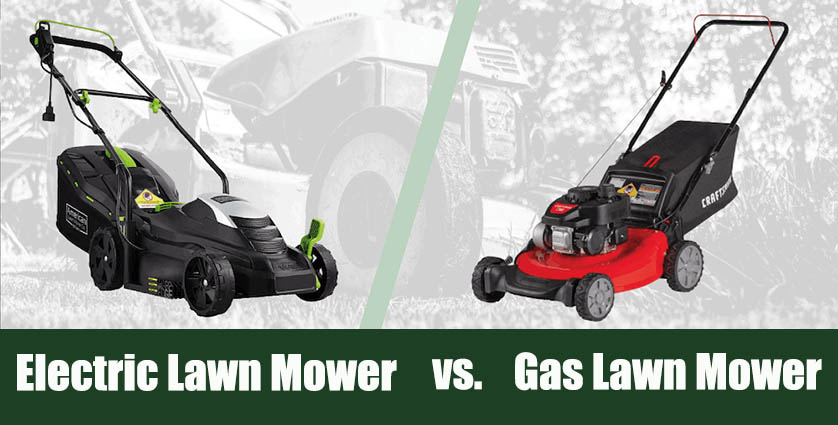

When it comes to lawn care, every handyman must make a huge decision: electric mower or gas mower?
A lawnmower is a major purchase, and you’ll want to pick a mower that best meets your specific needs. And it can be difficult to decide because electric mowers and gas mowers each have their own sets of benefits and drawbacks.
How can you decide which mower is best before you get to the store? Our handy guide will help you make the best decision and keep your lawn looking absolutely pristine.

Electric Lawn Mower Overview
Generally speaking, electric mowers come in two varieties. There are corded models that require the mower be plugged into a power source the entire time. And there are battery-powered models that require no additional power source.
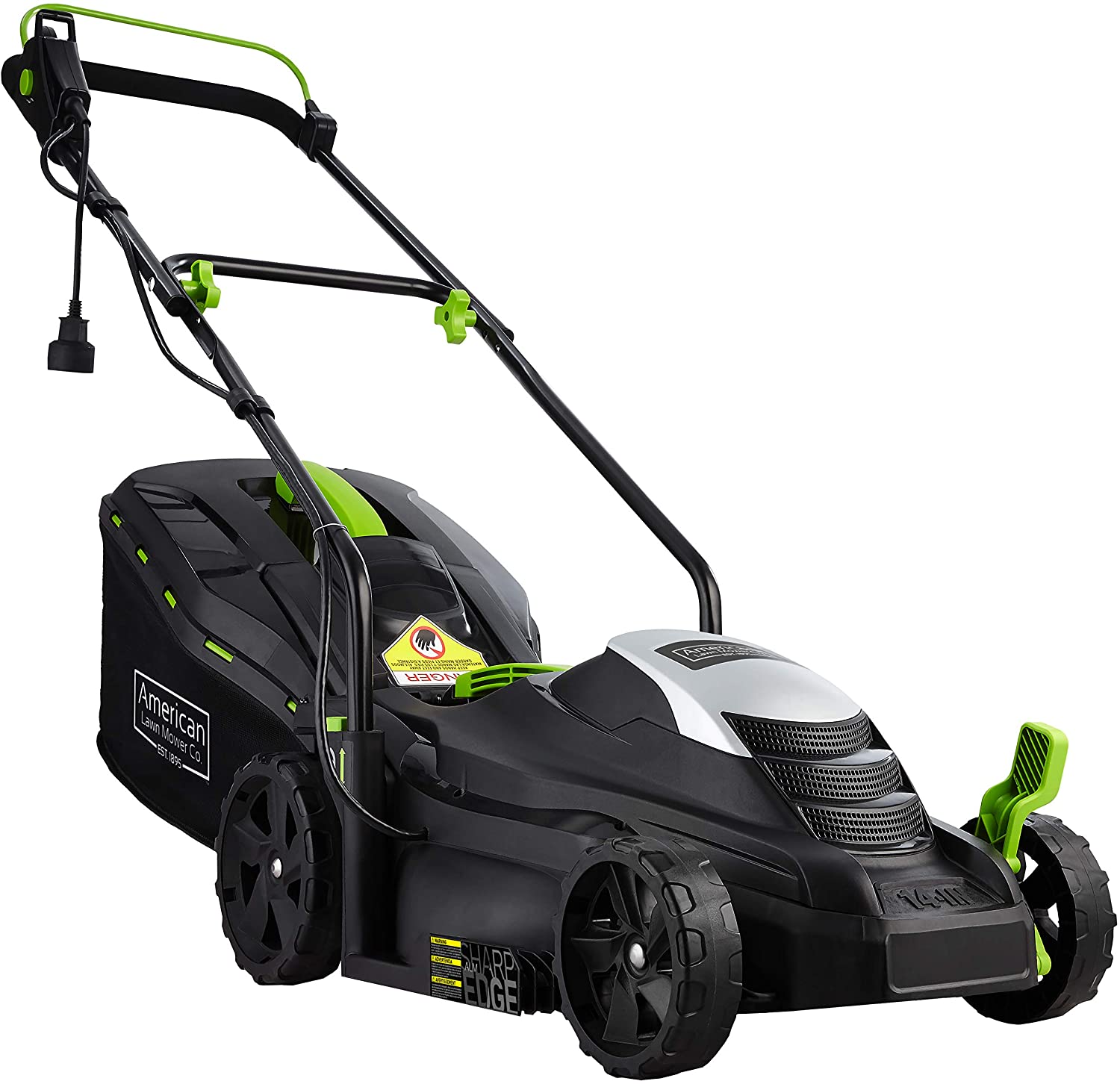
Battery vs Corded Electric
Battery-powered mowers are very convenient because your range and movement are not restricted. But the batteries may only last 30-60 minutes and will need to be replaced every few years. Because of this, some still prefer the reliability of corded mowers despite the range and movement limitations.
One of the biggest benefits of electric mowers is that they are quiet. Most models only reach about 75 decibels. This is great if you want to mow the lawn without waking up your family (and the rest of the neighborhood), and you can rock out to your favorite music with this environmentally-friendly mower.
Finally, electric mowers are great because they are so user-friendly. Maintenance is a breeze because you never need to change the oil, replace the sparkplugs, or maintain the carburetor. These mowers also start at the touch of a button–much more convenient than pulling a cord!
Power
As great as electric mowers are, there are a few drawbacks to consider. The first has to deal with the power source for your mower.
Batteries are very convenient, but you may not be able to mow for more than an hour without needing to recharge (which can take several hours). This can be bad news for anyone with a big yard or anyone who hopes to mow the front yard and the backyard in the same day.
Furthermore, the batteries will need to be replaced every few years. This can be very annoying, and it effectively cuts into the money that you save by using electric instead of gas.
A corded mower avoids this issue, but it’s tough to avoid the cord itself. The cord may get tangled in trees and bushes, further restricting how far you can mow while plugged in. You can fix this with an extension cord, but it’s all too easy to run over these cords while you mow.
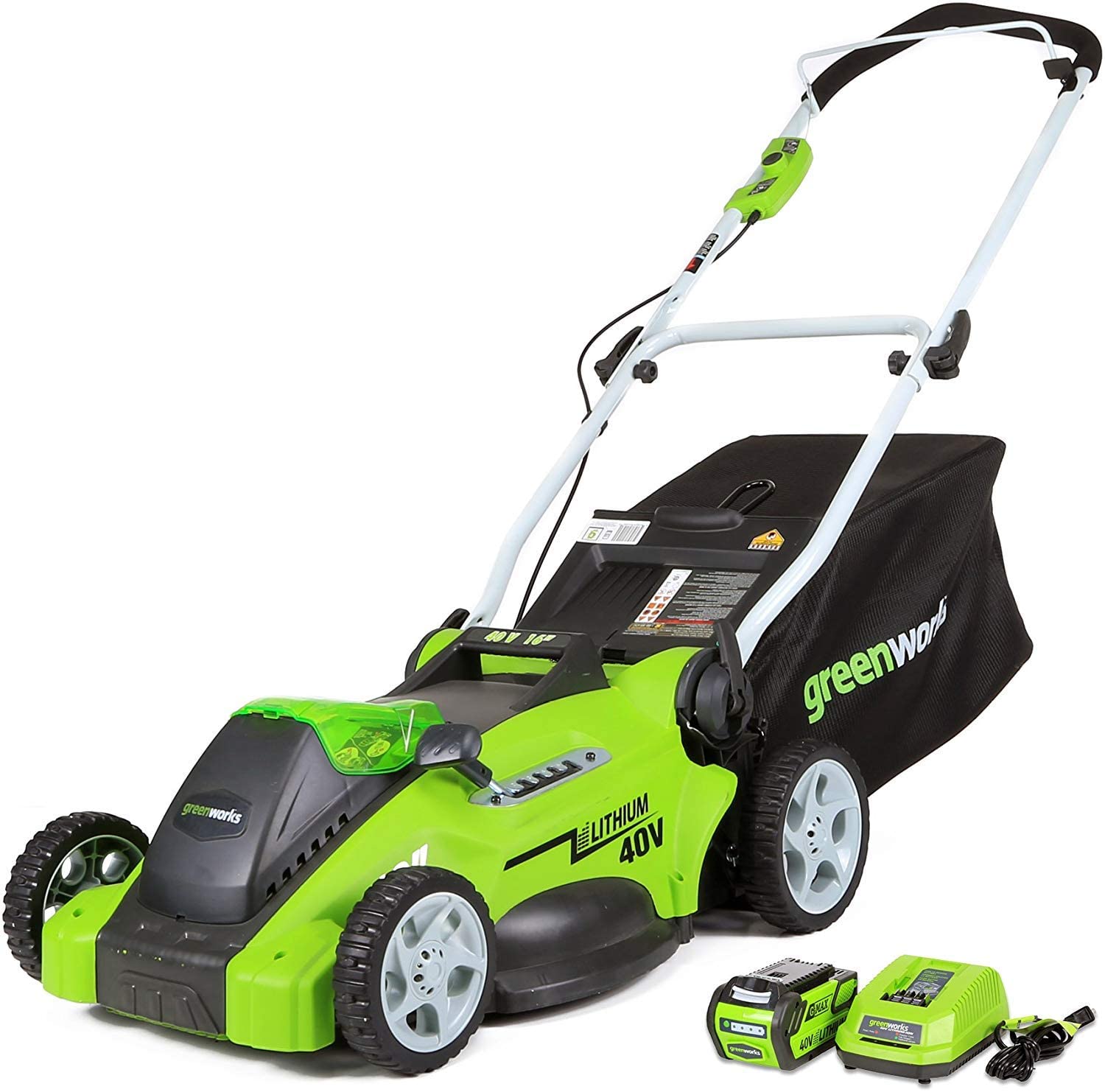
Performance & the Environment
Electric mowers are famous for being environmentally-friendly. And while they are definitely friendlier than gas mowers, the lithium-ion batteries that power many models are still bad for the environment.
Finally, electric mowers cannot match the power and performance of gas mowers. Large yards are difficult for electric mowers, and uneven terrain is an especially tough challenge. And thanks to the low torque, these mowers are bad when it comes to thick grass or even wet grass.
- Quiet
- Lightweight
- User-friendly
- Environmentally-friendly
- Great for small yards
- No need to worry about oil and gas
- Short battery life (30-60 minutes) or annoying cord
- Battery replacement
- Low power
- More expensive
- Less durable
- Bad for big yards and thick grass

Gas Lawn Mower Overview
You might remember gas mowers as being bad for the environment and difficult to use. Fortunately, modern gas mowers have evolved quite a bit in recent years.
For example, modern mower emissions are much cleaner than in years past. And some models feature the same kind of “push to start” feature that electric mowers have, which is great if you don’t want to pull a cord each time.
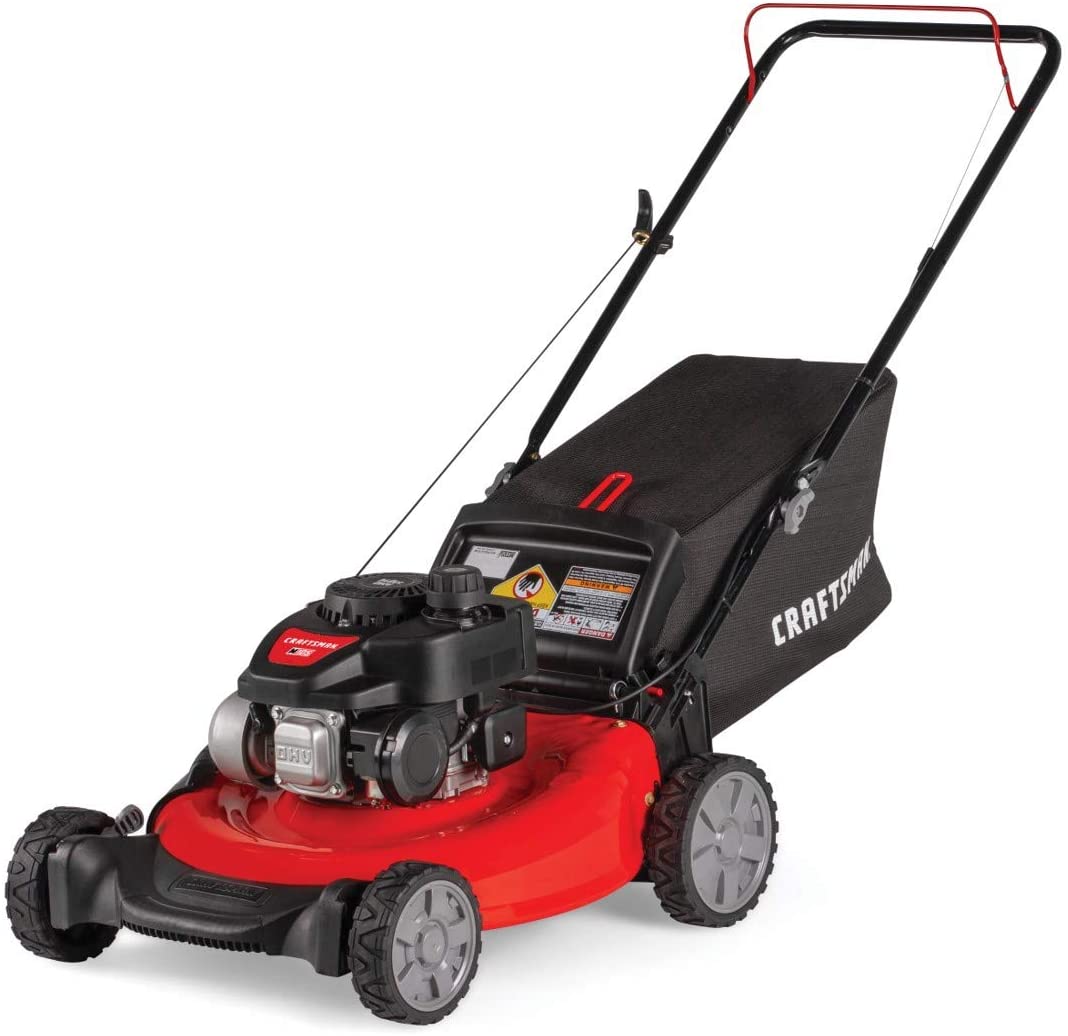
Price & Durability
Gas mowers also hit the “sweet spot” between price and durability. If you take care of a gas mower, it can easily last 10 years. Compare this to electric mowers which cost more, don’t last as long, and require frequent battery replacement.
Power & Performance
Finally, gas mowers have the power that you need to tackle very big lawns and very thick grass. They handle slopes and other uneven terrains very easily (especially self-propelled mowers), and you don’t have to worry about completing your work before a battery goes dead.
Ease of Use
For all the benefits, there are a few annoying drawbacks with gas mowers. And it’s up to you to determine if these drawbacks are actually dealbreakers.
It all starts with the construction of the mower. Gas mowers tend to last longer thanks to their steel construction. But this also makes them hard to move and hard to store.
Additionally, gas mowers are not as user-friendly as electric mowers. Fuel, oil, and engine maintenance will take up a lot of your time. And unless you have a push-button mower, you may find pulling the cord to start the engine both annoying and tiring.
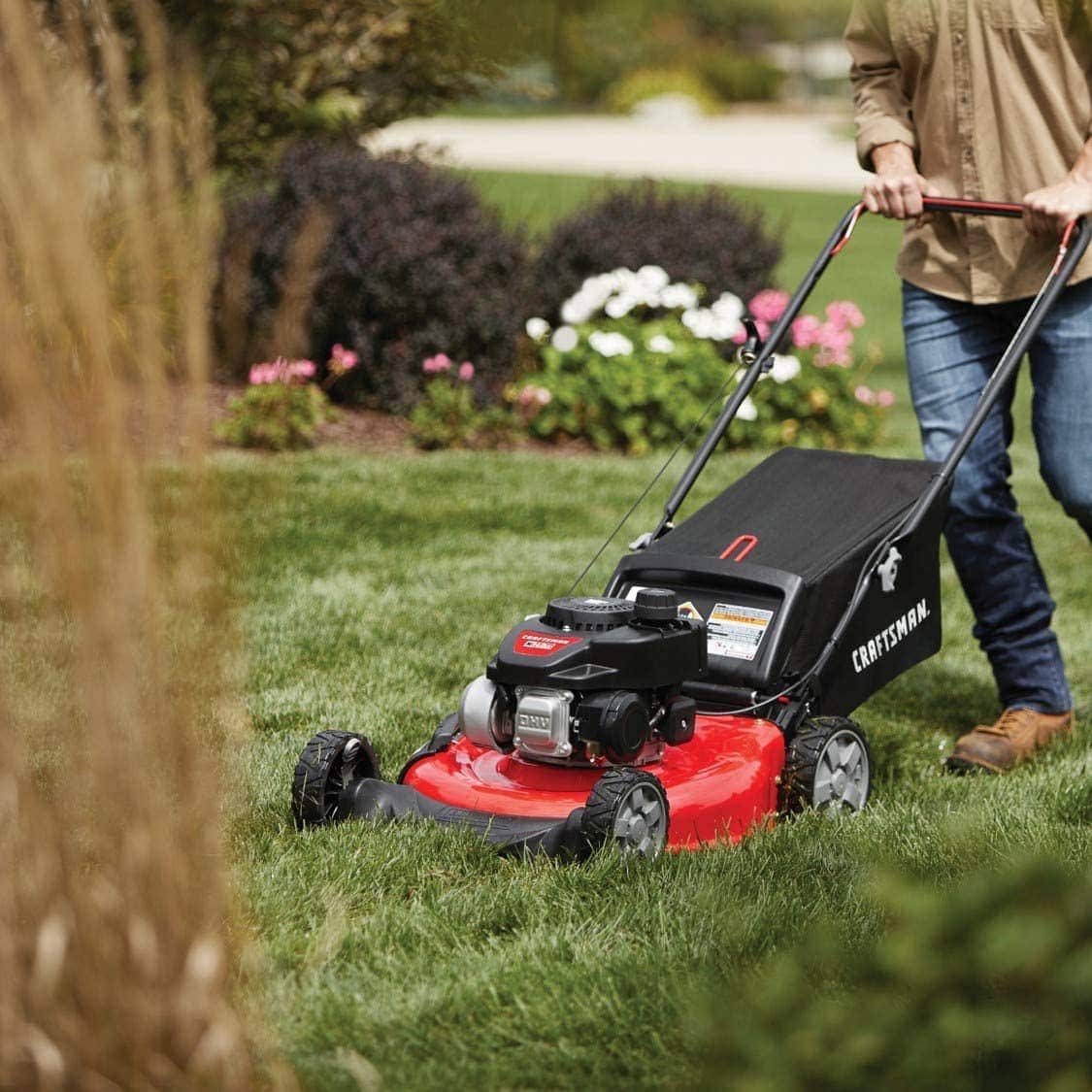
The Noise Factor
Finally, while gas mowers are more powerful, that power comes at a price. These mowers are typically louder (between 95-100 decibels), and they contribute to air pollution. This is bad for the environment in the long-term, and bad for your breathable air while you are mowing.
- Costs less
- Lasts longer
- Sturdier construction
- More power
- No battery or cord to worry about
- Harder to move and store
- Frequent maintenance
- Air pollution
- Loud to use
- Need to store oil and gas
- Need to dispose of oil

Which One to Choose?
So, which is better: an electric mower or a gas mower? It all comes down to your needs and preferences because each mower has unique benefits and drawbacks.
Electric mowers are great for smaller yards or simply for handymen that want an easy, no-maintenance experience. And if you don’t mind dealing with batteries or cords, this may be the best choice for you.
Gas mowers are better for bigger yards and experienced handymen. They take more effort and elbow grease to maintain, but ultimately cost less money and last for a longer time.
Whether electric or gas-powered, it’s important for you to take your time and find the best mower for you and your home!
Contents

